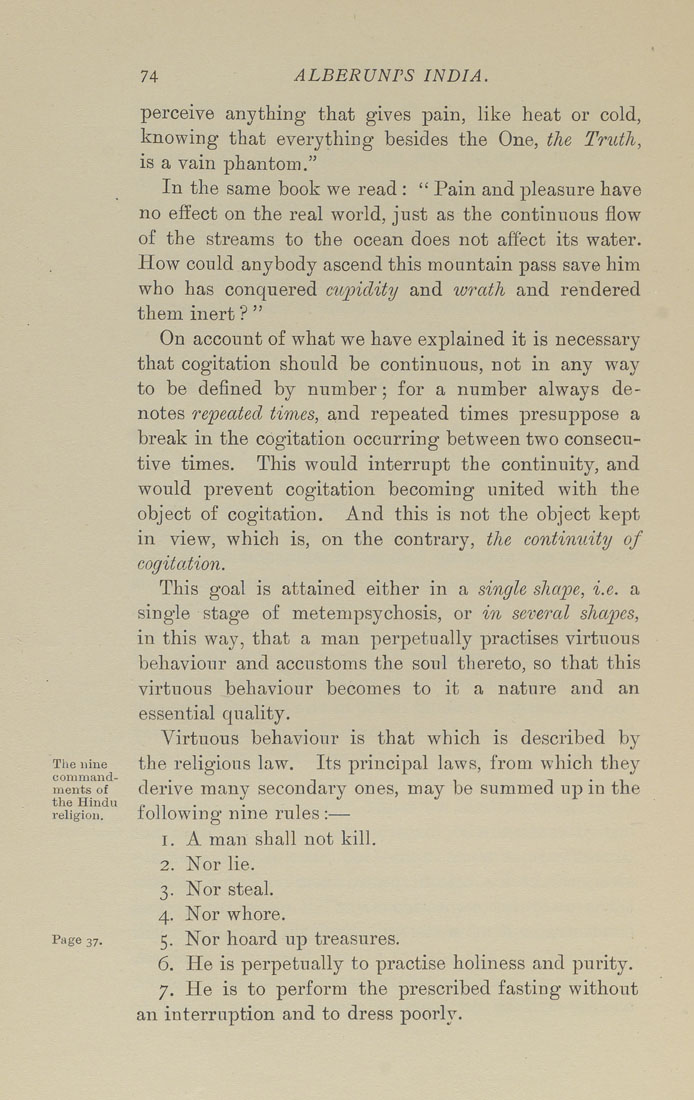Bīrūnī, Muḥammad ibn Aḥmad, Alberuni's India (v. 1)
(London : Kegan Paul, Trench, Trübner & Co., 1910.)
|
||
|
|
|
|
| Page 74 |

74 ALBERUNPS INDIA. The nine command¬ ments of the Hindu religion. Page 37. perceive anything that gives pain, like heat or cold, knowing that everything besides the One, the Truth, is a vain phantom," In the same book we read : " Pain and pleasure have no effect on the real world, just as the continuous flow of the streams to the ocean does not affect its water. How could anybody ascend this mountain pass save him who has conquered cupidity and ivrath and rendered them inert ? " On account of what we have explained it is necessary that cogitation should be continuous, not in any way to be defined by number; for a number always de¬ notes repeated times, and repeated times presuppose a break in the cogitation occurring between two consecu¬ tive times. This would interrupt the continuity, and would prevent cogitation becoming united with the object of cogitation. And this is not the object kept in view, which is, on the contrary, the continuity of cogitaMon. This goal is attained either in a single shape, i.e. a single stage of metempsychosis, or in several shapes, in this way, that a man perpetually practises virtuous behaviour and accustoms the soul thereto, so that this virtuous behaviour becomes to it a nature and an essential quality. Virtuous behaviour is that which is described by the religious law. Its principal laws, from which they derive many secondary ones, may be summed up in the following nine rules:— 1. A man shall not kill. 2. Nor lie. 3. Nor steal. 4. Nor whore. 5. Nor hoard up treasures. 6. He is perpetually to practise holiness and purity, 7. He is to perform the prescribed fasting without an interruption and to dress poorly. |
| Page 74 |







